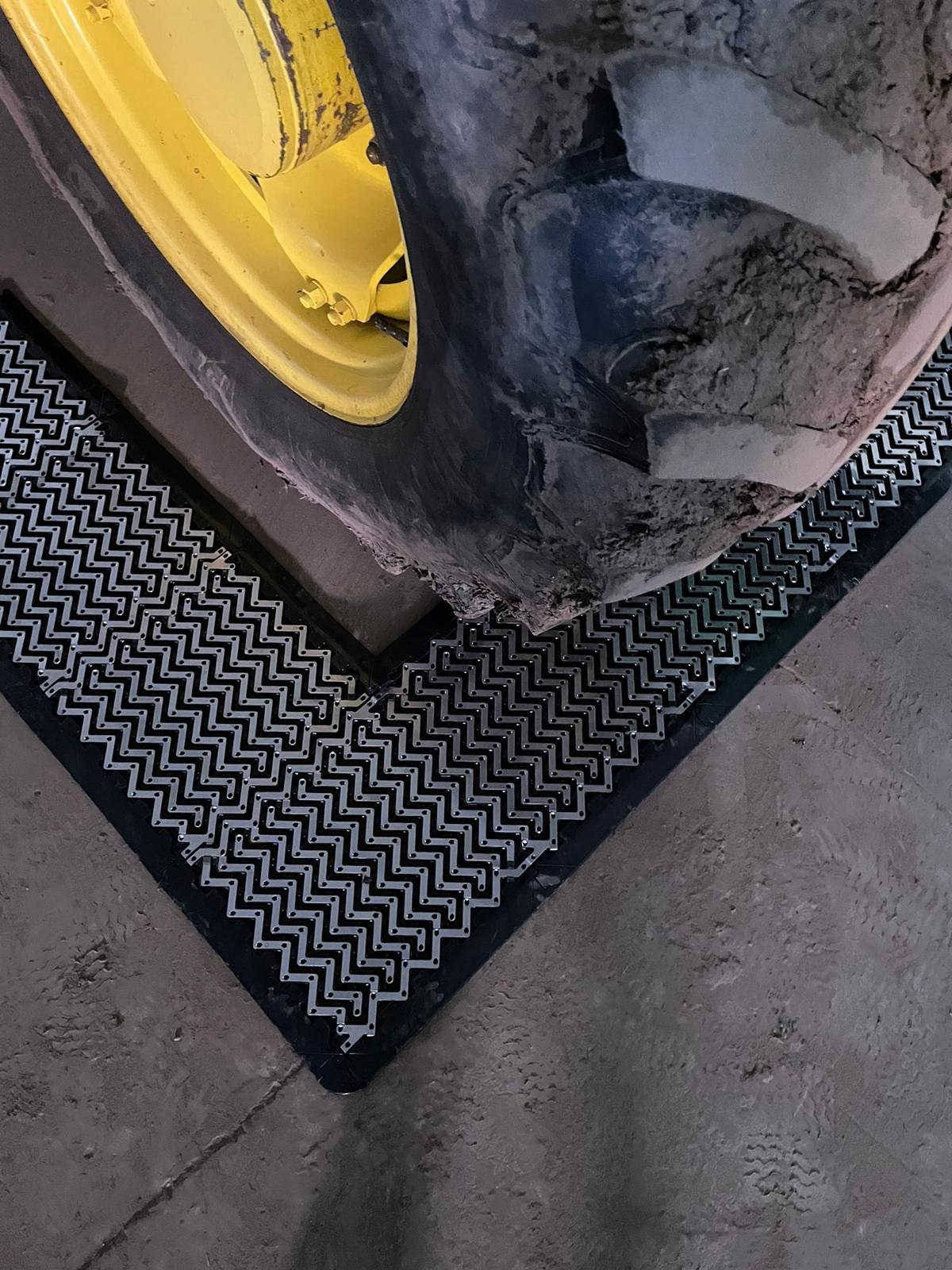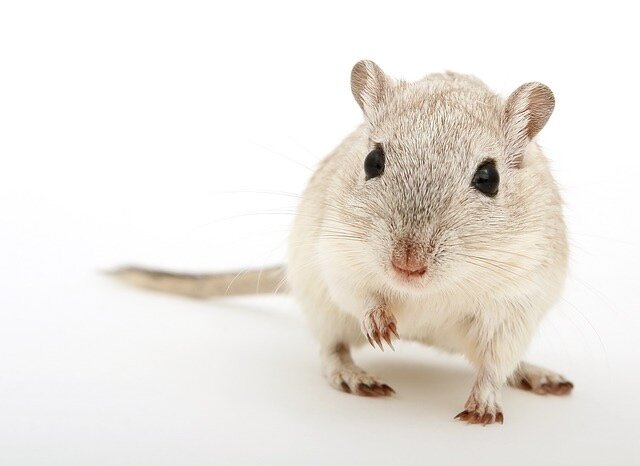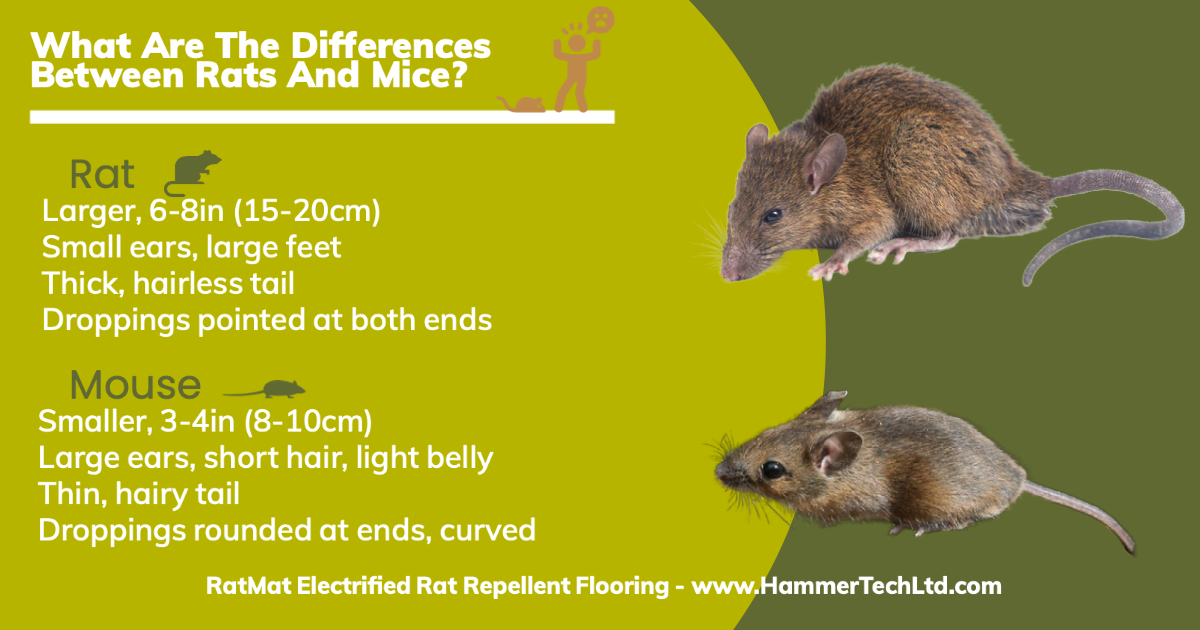Over the years, the number of interactions between wild bears and humans has increased. This has happened as our settlements have spread into their habitats. Sites which make an ideal situation for a bear to live in are beautiful and healthy environments for humans as well. Rivers, streams and forests are a wonderful backdrop for life.
Unfortunately, bears will often wander onto human property looking for food and shelter. This leads to fear and anxiety even when the animals are not aggressive. This situation is made worse when food is left about and garbage cans are unprotected.
Grid Guard (RatMat outside the USA) is an ideal solution if you are looking for the best bear repellent to keep bears out of your yard. It works like an electric fence on the floor to keep critters away. It is the only modular system available allowing you to adapt it to your space and needs. Simply put it across the doorway or around the area you need to protect and if a bear walks on it it will receive a harmless electric shock and leave the area. As they are intelligent they will learn not to return. You can walk across with shoes on, or drive across meaning that the system works as a barrier to bears but not to humans. Visit our Grid Guard USA and Canada distributor here or click ‘Buy Now’ above to find your nearest stockist.
The system delivers a very brief, humane shock once every second. Each shock is so brief that it is over before the bear has felt it. The system is 40 times less powerful than an electric fence so is safe for humans and animals.
The Best Bear Repellent - Electrified Flooring
Electric fences have been used for decades to keep bears away from humans and their property in Yellowstone National Park. Here is a great article showing how it is done. https://www.yellowstonegate.com/2014/09/electric-fence-program-helps-avoid-yellowstone-area-bear-conflicts/. Electric fences have been used since 1913 in Yellowstone to protect trash from bears. They are also in favour of beekeepers as everybody knows bears love honey.
Unfortunately, standard electric fences have the distinct disadvantage of being a barrier to humans and cars, as well as bears. This is where Grid Guard Bear Repellent Electrified Flooring comes in. By creating a Grid Guard boundary across the front of a property, gateway or garage, you can keep bears out of your yard.
Farmers have been using electric fences for over 100 years to contain their cattle and keep them safe from wild animals. It is widely accepted how effective the systems are, electricity is just as effective at deterring bears.
Electric fences are safe and humane and don't harm bears, humans or anyone else who comes into contact with the fence. Grid Guard uses the same technology to keep bears away. Because they are so effective they can prevent bears from being shot or otherwise harmed by people. Grid Guard can be used to create a bear-free zone so that humans and bears can be kept apart and avoid conflict.
There are many reasons why a bear may enter an area populated with humans. if it has cubs, it may be looking for a safer place to look after them. It may be avoiding other aggressive, territorial bears. As the bears become more confident in the human habitats, they may become bolder and property damage may occur.
It is unfortunate that hundreds of bears are unnecessarily killed every year. This is due to fear that their normal foraging behaviour could turn into something more dangerous. Bears are highly intelligent. They quickly learn to spot sources of food. Bears can recognise signs of human activity and containers which are likely to harbour scraps for them to eat. As a result, they may well return to the same site on multiple occasions in the hope of further nourishment. In the process, they may make a mess as they knock over garbage cans and search through for food.
It is rare that people and pets are hurt but it does happen occasionally. At times when bears are becoming confident, a brief deterrent electric shock is enough to make the animal see the area as noxious and go elsewhere. The presence of food or shelter acts as positive reinforcement and encourages the animals to return.
Strobe lights are frequently recommended to scare bears away. Motion sensors are often used to trigger them when the bears come near. Like some of the other repellents discussed here, it sounds like it makes sense. Who likes having a bright light flashed in their face? However, there is still no hard evidence that they actually work, particularly in isolation. Again there is the possibility that they could help if used in conjunction with other repellents. Unfortunately, the bears will probably get used to them in any case.
It is often thought that a dog will repel a bear but it could make the situation worse. This is particularly the case if the bear has cubs as the bear can see an aggressive dog as a threat and attack it to protect its family. In this way, it could draw the bear towards you and your family, rather than keep it away. It is best to avoid using a dog to keep bears off your property.
How To Bearproof Your Home
Bears are safe and happy when undisturbed in their natural habitat. There is only conflict when their activities overlap with those of humans. It is important to remove anything you can which is enticing bears into the area. As well as this, physical barriers such as fences and gates will help to keep bears away.
Remove all traces of food and vanity products as these can smell like food to bears. Lip balms and ointments contain fats and oils which can entice them. Avoid feeding birds in your yard as any seed can be smelt from miles away. You can safely feed them during the bear's hibernation season. Make sure there are no trees near your property that a bear could use to climb in through windows. Remove low branches and any which come close to the house.
Simply locking doors and windows can really help. Often when bears enter a house they get in through open windows and doors. Don't leave the garage door open when it is not in use. Make sure the doors are up to the job if you have food inside. This includes dog food, cat food and bird seed. Refrigerators and freezers also draw bears in. Their sense of smell is excellent and they can track a scent for miles. Trash cans are notorious for drawing bears. Get yourself some bear-proof trash cans or use Grid Guard Bear Repellent Electrified Flooring. This will keep bears away from your property.
Remember that anything with a strong scent may be like nectar to a bear. Air fresheners, beauty products and soap can all smell like a picnic to a hungry bear. Sudden loud noise is great for scaring bears away if they come into your home or yard. Shout, clap, bang things together and don't look like you are scared, even if you are. Don't approach them, especially if they have cubs. If people are in danger call 911.
What Other Methods Are There To Repel Bears?
Consider carrying an air horn if you are expecting a bear to come visiting. They are a great way of creating a sudden, loud, unnatural and unexpected noise. This is a highly effective way of repelling bears. You can also use bear spray but Grid Guard is the best option if you want 24/7 protection and peace of mind.
Bears can become accustomed to air horns and other banging sounds so be prepared to bump into one even after you have made a lot of noise. Think about using other methods to hand in case you need them.
Bears don't want a fight and will avoid you if they can. Aggression is often a result of a bear being surprised by humans and feeling vulnerable as a result. They can react defensively. The best way to avoid this is to talk as much as you can. If you are alone you can talk to yourself or the birds and insects. The bears will hear you and keep away.
Having a radio on in your yard can help but make sure it is a talk show and not music as this may not alert the bears to the presence of humans.
There is some disagreement over the use of bear bells when hiking. Some say the sound will keep them away, others say that bears don't think of humans when they hear the sound so are unlikely to keep away. Many of them are too quiet to be heard over a short distance and they only make a sound when the user is mobile.
Conversely, loud bells are irritating so aren't usually a realistic solution to the problem. They contribute to noise pollution in the beautiful unspoilt wilderness and other hikers may not be happy with you.
Music is similar to bear bells in that it is not socially acceptable to play loud music in the wild and bears may not think that a human would make such a sound. As a result, playing music may not be effective and could upset people and wildlife around you. Don’t use a whistle to repel a bear as this is a universal signal that you are in trouble and other hikers may come running, making the situation worse.
Ammonia is recommended by the Forest Service with the idea that the strong smell can keep bears away. By putting it around your property the bears find the smell unpleasant and keep away, so the idea goes. Again there is no evidence that this works. This type of repellent is less likely to work when bears are hungry or if they have come across the trick before. It might help in combination with other methods.
Please don't spray bears with ammonia as it is harmful and can permanently damage their sense of smell making them unable to hunt and forage.
There are bear repellents available which use ultrasound to keep bears away. This seems like an ideal solution in that it is cheap, unobtrusive and you can set and forget it. Unfortunately, like strobe lights, there is no evidence that they work. Ultrasound repellents are sold to repel many types of animals. These include rats, mice and moles but there is no evidence that they work in any of these cases.
It is tempting to believe that the animals will find the sound unpleasant and leave and this may be the case to start with. If the animal is hungry and realises that there is no true threat present it will quickly learn to ignore the sound and return to tossing your trash cans.
Bear bangers are an alternative bear repellent you could try. They are similar to the bird scarers used by farmers to keep birds off their crops and seeds. They are lit and thrown, giving off a loud 'crack' when they go off. Sometimes they help but bears aren't always scared by them due to habituation. Be careful if you use them; they are explosives so you are at risk of harm from them.
If you throw it make sure you throw it between yourself and the bear and not over the bear otherwise you are at risk of scaring it towards you, rather than away. You could practice using them a few times before you need them so you get a feel for how long the fuse lasts and where to throw it. You don't want the first time you use them to be when you are in a terrifying confrontation as you are more likely to make a mistake.
Why Are Bears Aggressive?
Normally bear attacks on humans only occur when they are protecting themselves. This can be against something they perceive to be a threat to themselves, it's cubs or their territory. They do not usually attack spontaneously or unprovoked. Despite this, humans are often scared of them resulting in them behaving in a way which can upset the bears.
Solitary bears are more likely to feel threatened, particularly whilst eating or if they feel trapped or cornered. If you come across a bear in this situation try to reduce their feeling of threat as much as you can. Make sure they have a clear exit or you are far more likely to be attacked.
Never run away as you are more likely to be attacked. Make yourself look as big as possible by waving your arms and screaming as loud as you can. If they hit you it is best to lie still and protect yourself. Lie on your stomach and put your hands behind your neck and interlock your fingers. If the bear doesn't see you as a threat anymore it will leave you alone.
Sloth bears, Asiatic black bears and brown bears are naturally more aggressive. This means they attack and injure humans more often than other species. The American black bear is relatively more timid than these.
Because people are frequently scared of bears their behaviour can be interpreted as threatening even when it is not. This misinterpretation leads to people thinking that bears are ferocious and mean even though they are not. Their behaviour is actually highly predictable. So if you are wondering why bears are aggressive, you might find that they are actually calm and retiring instead.
Bears are naturally shy and would rather be left alone than fight. They don't want to interact with humans. They only do this when they are in an area looking for food, water or shelter.
In the same way that humans have personal space, bears have an area around them that they will protect if someone enters it. The diameter of this space changes from bear to bear as well as depending on how threatened the bear feels.
Bears are excellent climbers so may climb a tree or send their cubs up to safety when threatened. They are curious creatures due to their intelligence. Bears will check out things they find as well as new smells and noises, as well as standing on their back legs to get a better view. These behaviours can all be misinterpreted as being aggressive towards humans.
Bears are so keen to avoid human contact that they have become nocturnal in some areas. Others have become so acclimatised to human contact that they are relatively tame. This allows them more easy access to human food left around the environment.
Myths About Bear Behaviour
Humans have always been intrigued by bears. They are highly resourceful and adaptable. Bears drive our imaginations, stimulating fascination, fear and misunderstanding in equal measure.
Unfortunately, the press love to hype a story of vicious attacks by malicious bears. This is not in the favour of the Bears and leads to people seeing them in a negative light unnecessarily. As a result, there are many myths about bear behaviour.
This is similar to the situation with great white sharks which are usually peaceful and leave humans alone unless threatened. The stories often tell of bears lusting for blood and say that there’s a serious hazard to humans, whatever the situation. This is not true and, unfortunately, leads to people acting in a way, which can make the situation worse and harm bears unnecessarily.
It is also a myth that bears are cute and furry, like a child's toy. This can also lead to their protected space being invaded and the bear feeling threatened. It is important that we dispel these myths about bear behaviour in order that we can protect them and ourselves. It is key for us to understand their required environmental conditions and the way in which they behave in order that we can coexist safely. The use of bear repellent to keep bears out of your yard should be a last resort after learning how these magnificent creatures behave. Along with this, it is key to use non-confrontational passive methods to reduce the factors drawing them into the area.
Common Myths
A bear is unpredictable. In fact, bears can be easy to understand and will make sounds and use their bodies to let you know how they are feeling.
A bear can't run downhill. Bears are fast. At over 60kph, they will outrun a racehorse over a short distance. A slight incline isn't a problem for them.
Bears standing on their hind legs are threatening you. This is not true. They are having a good look at something.
Bears who have tried food from humans won't eat bear food any more. Actually, bears prefer wild food and will only eat food from humans when they have difficulty getting natural food.
You are safe from a bear in a tree. This is rubbish. Many types of bears are very happy in trees and have been known to attack humans and other bears whilst up a tree.
A bear only eats meat. Bears are actually omnivores, rather than carnivores, meaning that they eat plants and animals. Most of their diet consists of fish, mammals and insects, the rest is vegetation and fruit.
The eyesight of a bear is not good. In fact, bears have vision similar to humans and can see in colour. They can see well at night as well. Their eyes are particularly good at perceiving movement. Similar to cats and dogs they have a shiny layer of cells at the back of the eye which bounces back any photons which missed the retina the first time. This gives them a second chance at being seen.
Bears which trespass on human property are dangerous. It is difficult for bears to forage for food without crossing human property as they can travel hundreds of kilometres looking for food. This means any bear in your yard is likely just looking for food, not a fight.
Relocating or shooting a bear is a good solution to the problem. Like rats, if you remove one from an area, another returns to take its place. They will exploit the empty niche which is left behind.
Shooting a bear is safer than using bear spray. Research by Dr Stephen Herrero found that the risk of a serious injury from an attack by a grizzly doubles when guns are used compared with bear spray. People who had been injured and then defended themselves with spray tended to end the attack sooner than those using guns. Don't spray bear spray onto bags and clothing as the smell of old spray actually attracts rather than repels them.
It is very dangerous to come between a black bear and its cubs. It is unusual for a bear to attack a human in defence of their cubs as they can tree them. Despite this, if you are in proximity to a mother's cubs she may perceive you to be a threat. She may charge but then bluff, not actually coming into contact with you. Make sure you show you are not a threat.
Bear attacks are common in bear territory. Not true. Thousands of encounters happen every year but only a small number result in injury. Bears will usually leave as soon as they are aware of the presence of humans.
Menstruating women are more likely to be attacked by a bear. There is no evidence for this. However, it is recommended that tampons are used instead of pads. Used items should be burnt, don’t carry them if you can avoid it.
Playing dead will always help if you are attacked. This helps if the attacking bear is protecting her babies. It won't help if the bear is predatory. In this instance, you need to fight hard to defend yourself. Hit the bear with rocks or anything you can find, punch and kick. Predatory bears will often sneak up on people from behind silently. It won't give you any warning with vocalisation or body language. It might hold its head close to the ground and fold its ears along its head.














